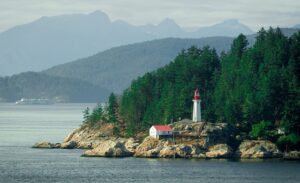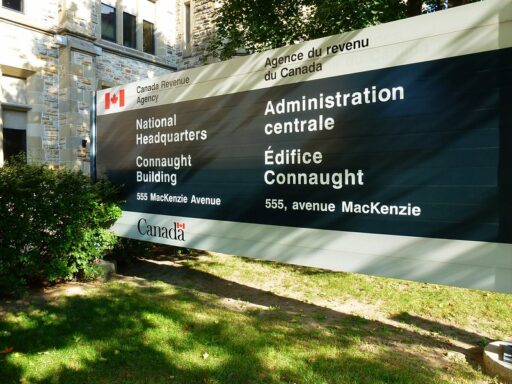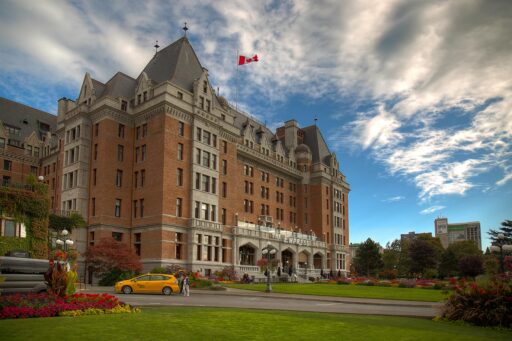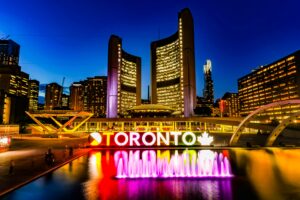Canada is a top destination for expats living abroad due to its strong economy, high quality of life, and immigrant-friendly policies.
So, is Canada good for expats? It depends. The experience varies based on employment opportunities, cost of living, taxation, and provincial differences.
If you are looking to invest as an expat or high-net-worth individual, which is what I specialize in, you can email me (advice@adamfayed.com) or WhatsApp (+44-7393-450-837).
This includes if you are looking for a second opinion or alternative investments.
Some of the facts might change from the time of writing, and nothing written here is formal advice.
While Canada offers a stable environment and pathways to permanent residency, expats must consider immigration restrictions, job market realities, and healthcare access before relocating.

How to Become an Expat in Canada
Canada has multiple immigration programs for expats, with the Express Entry system being the most common for skilled workers.
The Provincial Nominee Programs (PNPs) allow provinces to select candidates based on regional labor needs, while work permits and post-graduation work permits (PGWP) provide temporary residency for job seekers and international students.
However, immigration policies change frequently, and restrictions exist, such as the foreign homebuyer ban (2023–2025) and additional requirements for business and investor visas.
Expats should assess their eligibility for permanent residency before committing to relocation.
For a step-by-step breakdown of Canada’s immigration pathways, check out our detailed guide on how to become an expat in Canada.
Expat Jobs in Canada
Canada offers strong employment opportunities for expats, but job availability varies by industry and province. The most in-demand sectors include healthcare, technology, engineering, construction, skilled trades, and finance.

Expats with experience in IT (software development, cybersecurity, AI), nursing, medicine, and engineering have better prospects, particularly in cities like Toronto, Vancouver, and Calgary.
However, some professions, such as law, accounting, and healthcare, require Canadian licensing and credential recognition, which can be a barrier for foreign-trained professionals.
The minimum wage also differs by province, ranging from CAD 15.00 (Saskatchewan) to CAD 17.59 (Yukon) per hour in 2024.
Salaries are higher in cities with strong job markets, but the cost of living in major urban areas like Toronto and Vancouver can offset wage advantages.
In contrast, Alberta, Saskatchewan, and Atlantic Canada offer lower living costs and strong labor demand, particularly in trades, energy, and agriculture.
Can expats start a business in Canada?
Expats interested in starting a business in Canada can apply for the Start-Up Visa Program, which requires a qualifying business plan, commitment from an approved investor, and sufficient personal funds.
Registering a business in Canada is relatively simple, with corporate tax rates ranging from 9% (small businesses) to 15% (general corporations) federally, plus provincial taxes.

Ontario, British Columbia, and Alberta are preferred locations for start-ups due to their business-friendly environments and large markets.
Despite Canada’s job market advantages, bureaucratic delays in foreign credential recognition, regional employment disparities, and labor shortages in specific industries can impact expat job success.
Expats should ensure their qualifications are transferable and consider industries that are actively recruiting international workers.
Cost of Living in Canada and Affordability
The cost of living in Canada varies significantly by province and city, with housing being the largest expense for most expats.
Toronto, Vancouver, and Montreal are the most expensive cities, particularly in terms of rent and home prices. As of 2024 the average monthly rent for a two-bedroom condo apartment is at:
- Toronto: CAD 2,900+
- Vancouver: CAD 2,800+
- Calgary: CAD 1,900+
- Montreal: CAD 1,700+
- Halifax: CAD 2,300+
Take note that these figures are rough estimates based on currently available data.

Home prices are also highest in Toronto (CAD 1.1 million) and Vancouver (CAD 1.2 million), while more affordable markets exist in Alberta, Saskatchewan, and Atlantic Canada, where homes cost CAD 300,000–500,000 on average.
Food and daily expenses also depend on location. The average monthly grocery bill for a single person is around CAD 350–600, with higher costs in northern and remote areas.
Dining out is expensive, with restaurant meals averaging CAD 15–30 per person. Public transportation is available in major cities, with monthly transit passes costing CAD 100–180, while gas prices fluctuate but remain around CAD 1.50–1.90 per liter in most provinces.
Childcare and education costs are another major factor for expat families. Childcare costs vary by province:
- Quebec offers the most affordable daycare at CAD 8.85 per day, thanks to government subsidies.
- In Toronto and Vancouver, daycare costs can exceed CAD 1,500 per month.
Public schooling is free, but international students or non-resident children may face tuition fees ranging from CAD 12,000 to CAD 20,000 per year.
Overall, while Canada offers stable wages and social benefits, the high cost of living in major cities, rental market shortages, and regional price disparities make affordability a key concern for expats.

Expat Healthcare in Canada
Canada’s healthcare system is publicly funded and administered by provinces and territories, but expats may not qualify for immediate coverage.
Permanent residents and work permit holders are eligible for provincial health insurance, but some provinces impose waiting periods (e.g., Ontario: 3 months) before coverage begins. Expats on visitor visas or short-term contracts must rely on private health insurance.
Healthcare quality is high, but challenges include long wait times for specialists, regional disparities, and limited dental and prescription drug coverage under public plans. Private insurance is often required to bridge these gaps.
Expat Taxes and Financial Considerations
Canada’s progressive tax system impacts expats based on residency status, income source, and foreign asset holdings.
The Canada Revenue Agency (CRA) determines tax residency based on primary ties (home, spouse, dependents in Canada) and secondary ties (bank accounts, memberships, driver’s license).
Income Tax for Expats
- Residents are taxed on worldwide income and must file annual tax returns.
- Non-residents are taxed only on Canadian-sourced income, including rental earnings, employment income, and investments.
- Withholding taxes apply to non-residents earning dividends (25%), interest (varies by treaty), and rental income (25%), though these rates may be reduced under tax treaties.

Provincial Tax Rates
Each province has its own income tax rates, which range from:
- Low-tax provinces: Alberta (flat 10% rate), Saskatchewan (10.5–14.5%).
- High-tax provinces: Quebec (14–25.75%), Ontario (5.05–13.16%).
Foreign Income and Reporting
- Expats with foreign assets over CAD 100,000 must file Form T1135 (Foreign Income Verification Statement).
- Tax treaties help avoid double taxation, but expats may still owe taxes in their country of residence.
Real Estate and Investment Taxes
- Capital gains tax: 50% of gains on Canadian real estate and investments are taxable for both residents and non-residents.
- Property taxes: Varies by province, typically 0.5–2% of assessed value.
- Foreign buyers’ taxes: 20–25% in Ontario and BC for non-residents.

Pension and Retirement for Expats
- Canada Pension Plan (CPP): Available if contributions were made while working in Canada. Expats can receive CPP payments abroad.
- Old Age Security (OAS): Requires 20+ years of Canadian residency to qualify for full payments abroad.
Expats should consult tax professionals and expat financial advisors to ensure compliance with Canadian tax laws, tax treaties, and foreign income reporting obligations.
Quality of Life and Safety
According to the 2024 Global Peace Index (GPI), Canada ranks 11th out of 163 countries and territories. This means that Canada has very low crime rates compared to global standards, but safety varies by region.
Cities such as Quebec City, Ottawa, and Calgary rank among the safest in North America, while urban centers like Toronto and Vancouver have higher rates of property crimes and vehicle theft.
Gun violence and violent crime remain relatively low, with strict firearm regulations in place.
Environmental Quality
- Air quality: Generally high, except in areas affected by seasonal wildfires (British Columbia, Alberta).
- Water quality: Safe drinking water in major cities, but boil water advisories occur in remote Indigenous communities.
- Green spaces: Canada has extensive national parks and urban green spaces, improving overall livability and outdoor recreation opportunities.

Cultural Diversity and Social Integration
Canada is one of the most multicultural countries in the world, with Toronto, Vancouver, and Montreal hosting large expat communities.
Over 20% of the population is foreign-born, and Canada actively promotes immigrant integration through language programs (ESL/FSL), settlement services, and employment support programs.
However, expats may face challenges, including:
- Language barriers in Quebec, where French proficiency is often required.
- Slow credential recognition for foreign-trained professionals in regulated fields (medicine, law, accounting).
- Housing affordability issues in major cities.
Weather and Climate
Canada’s climate varies significantly by region:
- West Coast (Vancouver, Victoria): Mild, rainy winters, moderate summers.
- Prairies (Alberta, Saskatchewan, Manitoba): Cold winters (-20°C to -40°C), warm summers.
- Ontario & Quebec: Four seasons, humid summers, snowy winters.
- Atlantic Canada: Coastal climate, strong winter storms.
- Northern Canada: Extreme cold, polar conditions, minimal sunlight in winter.

Expats should consider climate preferences when choosing a province to settle in, as extreme weather conditions affect transportation, energy costs, and overall livability.
Overall, Canada provides a high standard of living, strong social support systems, and relative safety, but factors like climate, cost of living, and credential recognition issues can impact expats’ experiences.
Pained by financial indecision?

Adam is an internationally recognised author on financial matters with over 830million answer views on Quora, a widely sold book on Amazon, and a contributor on Forbes.



